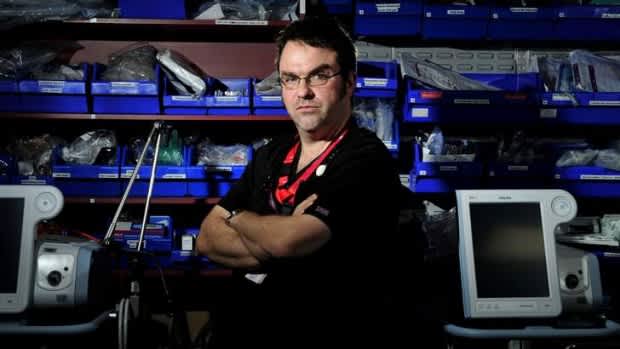While the country has been subjected to shocking revelations from the capital of our nation for the past few months, another equally startling story has somewhat managed to slip under the radar.
In February, Labor backbencher Michael Pettersson introduced a private members bill to remove criminal penalties for the possession of small amounts of some illicit drugs in the Australian Capital Territory.
If it passes, the bill would effectively make being caught with small quantities of MDMA, cocaine, and even heroin and ice a non-criminal matter. Instead, users would be hit with a $100 fine and sent to a health programme.
This wouldn’t make all drugs legal and you would still get into trouble for being caught with them. However, the penalties for possession wouldn’t give users a criminal record or bring them into the prison system, a practice that serves to harm, rather than help users.
It might sound like a radical idea here in Australia, but it’s one that Portugal has been using effectively for two decades. That strategy dropped their rates of drug-related HIV infection by 90%, increased treatment for people with addiction by 60%, and didn’t significantly increase drug use across the country.
The bill is now before a parliamentary committee who are accepting submissions on the policy from the public and will report back in October.
How likely is it to pass?

Associate Professor David Caldicott is an Emergency Consultant at the Emergency Department of the Calvary Hospital in Canberra and a Clinical Senior Lecturer in the Faculty of Medicine at the Australian National University.
He has been an outspoken proponent of drug reform and harm reduction strategies for many years and is largely responsible for the implementation of pill testing at ACT music festivals.
Caldicott says that the changes the bill will pass are in fact quite likely.
“It wouldn’t surprise me if it did pass. But I think the big interesting question is, to what degree does the federal government have an appetite for intervention?”
There is precedent in the ACT with legislation being blocked by federal powers. Former Prime Minister John Howard blocked the introduction of a supervised injection room in 1997 and the first attempt to conduct pill testing on crown land in the ACT was also blocked federally.
Cannabis decriminalisation and subsequent legalisation for personal quantities is legal in the ACT, though Caldicott suspects the latter may only have passed last year because the government was distracted by the COVID pandemic.
That being said, federal members were highly critical of pill testing until the programme got underway, many of whom have now fallen silent given the positive results it has produced.
“My impression is that there is less opposition to this than there was to pill testing,” Caldicott says.
“It’s hard to tell because people keep their cards very close to their chest. But the decriminalisation of drugs is something that is considered – I wouldn’t say bipartisan necessarily, but there is broad acceptance of it within the ACT.
“I don’t want to give the impression that anybody is complacent about it. I think it’s probably as likely to pass as it is to not pass.”
Even with Caldicott’s 50/50 assessment, the legislation would have to be given the green light by the upper house, a move which could be tougher to get given the history of federal intervention in ACT politics.
Why would the ACT decriminalise drugs?
It’s been clear for years to anyone even remotely interested in drugs policy that our current strategies are not working and are, in fact, making the situation far worse.
From the rise of the cartels in South America and the mass incarceration of Black people in the US, to the vast overrepresentation of Indigenous people in Australian jails, the drug war has produced endless tragic consequences while failing on its own terms. Drugs are cheaper, purer, and more easily accessible than they ever have been and we’ve spent untold billions to produce these results.
Globally, a change is coming. With more and more states in the US legalising the recreational use of cannabis every month, and some states now implementing full decriminalisation, it seems only a matter of time before the rest of the world follows suit.
The official drug policy of our country states that reducing the harm associated with drugs is one of our key aims – a significantly less funded aim than prosecuting users and chasing after suppliers, but an aim all the same. That is made significantly more difficult to achieve when you can get in trouble for admitting drug use or possession.
By reducing the penalties for drug possession, the aim here is to help users who need it without the fear of criminalisation. The ACT want’s to be the first place to employ this common-sense approach.
The intellectual and academic nature of the ACT, as well as the strong cross-pollination between the children of politicians and those of medical experts, is what Caldicott argues lends the territory to pursuing such evidence-based policy.
“There is a certain degree of intellectual pride or ownership in the ACT, within the electorate of, having advanced legislation and public policy that reflects the very best that is happening anywhere in the world.”
From the perspective of the rest of Australia, the drug policy in the ACT is far more progressive than anywhere else. The possession of small amounts of cannabis has been decriminalised since 1992 while the same is true of South Australia and the Northern Territory.
However, just last year, the ACT also made it legal to grow cannabis at home and possess up to 50 grams without penalty.
The ACT has also run two trials of pill testing at festivals – headed up by Caldicott – testing a total of 171 substances and finding seven to contain potentially lethal chemicals.
“It’s a small jurisdiction, and therefore, it is capable of great agility,” Caldicott explains.
What would it mean for the rest of Australia?
Having the capital of our country decriminalise drug possession would be a major blow to regressive drug policy across the rest of the country. It would, however, likely take a few years before the rest of the states and territories begin to see the benefits of the policies enacted. Whether they would then act upon that information is another matter.
“Australia likes to portray itself as very much a first world nation, agile, forward-looking, innovative, and making advances across multiple domains of civil society. But in the world of drug policy, it’s not that. It really isn’t,” Caldicott said.
“I think there is a major dissonance in opinion as expressed by politicians and what the general public are interested in. I think it is now no longer unfair to say that the policies that exist for drugs in Australia no longer represent the will of anything other than a very vocal minority.
“I myself have no explanation for why there is such slow progress in Australia, other than that there are fairly significant conservative forces at work in the background, including from within the media and from within law enforcement.
“I can’t begin to tell you the number of people – both federally, interstate, and elsewhere around Australia – that I’ve spoken to who are elected members who say we completely agree with what you’re saying we just can’t do it right now”.
While politicians may be unwilling to go against the grain and stand up for sensible drug policies – something that has been considered political suicide for a long time – the inevitability of the matter is only increasing.
“The demographic of those people that we’re electing is changing,” Caldicott explains. With younger politicians coming into positions of power who are less steeped in the War on Drugs rhetoric and the moral and religious sensibilities of the past, it’s suggested that policies such as decriminalisation will soon appear less radical.
“Bear in mind as well that the ACT has a very unusual system for Australia in which power is shared between the Greens, who have a very well-articulated platform of drug law reform, and a fairly progressive Labor Party.
“That creates, if you like, the compost in which good ideas are allowed to settle. Whereas in jurisdictions like New South Wales, the political environment makes any sort of progressive change difficult. It’s like arid, soil in which ideas are abandoned and die.”
While decriminalisation, if it does pass in the ACT, might ruffle a few feathers federally, we probably can’t expect a swift cascade of social change in other areas of the country quite yet. Certainly, the policies will be closely examined, but they are unlikely to be followed until broader political change is implemented.
Read more stories from The Latch and subscribe to our email newsletter.







